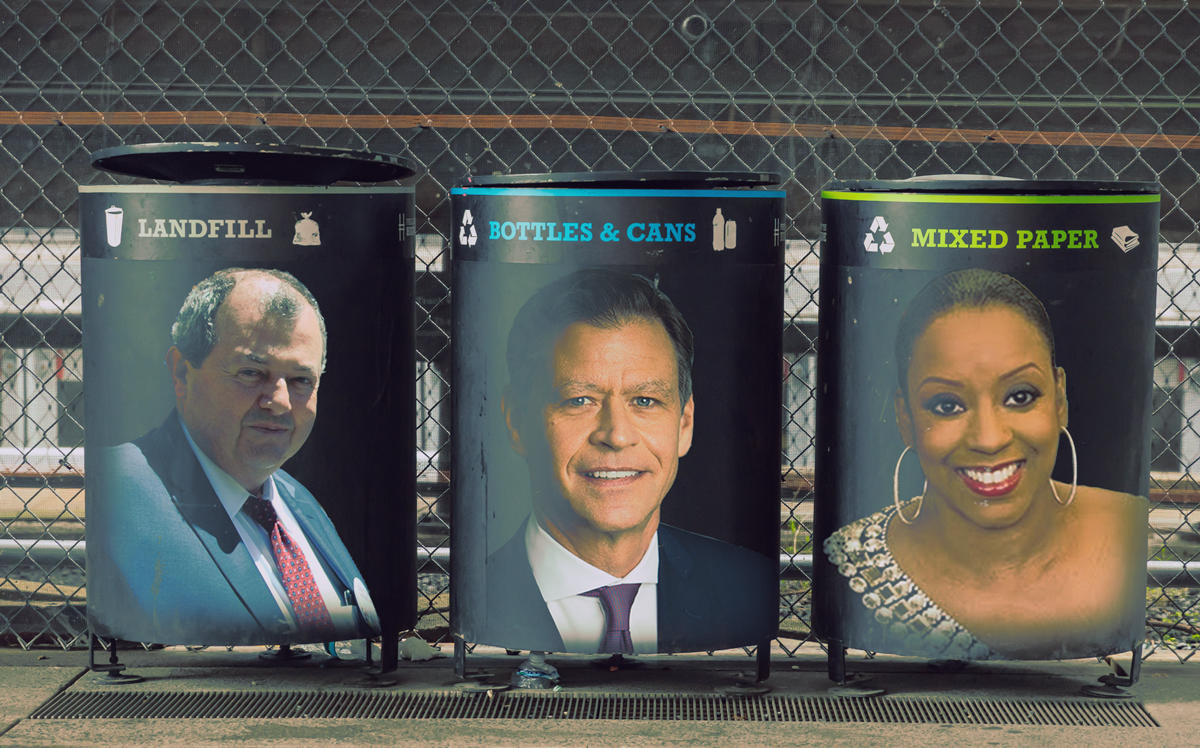Trending
Business groups seize chance to amend commercial waste bill
REBNY and other groups want the Council to let more than one carter work in the pickup zones it is planning

Industry groups are trying to exploit an opening in the fight over private waste collection.
Almost 30 business organizations asked the City Council on Monday to allow for more than one carter in the 20 zones it plans to establish for commercial waste collection. The letter was prompted by an admission last week from Council member Antonio Reynoso that he is open to changing the clause in his bill that calls for one exclusive hauler in each zone.
The business organizations are strongly opposed to the idea of having no choice of carter, writing that it “would remove one of the most important factors when it comes to commercial waste collection: the ability of property owners and businesses to choose a carter that can best meet their highly specialized needs. With sole control over a particular zone, carters would have no incentive to compete or improve the quality of their service.”
Businesses that signed the letter include the Real Estate Board of New York, the Downtown Alliance and the NYC Hospitality Alliance, which represents restaurants and nightclubs, among other establishments.
“Ultimately, there may be some form of zone system,” NYC Hospitality Alliance executive director Andrew Rigie acknowledged, “but a monopoly carter system is asking for trouble in my opinion, and small businesses will likely be on the losing end of such an overhaul.”
A spokesperson for Reynoso said the council member “is listening to all stakeholders and is engaging in an active negotiation process to ensure that the bill best meets its goals and the needs of all engaged parties.”
The bill aims to deal with environmental concerns and worker-safety issues in the commercial waste industry. It would require exactly one private trash collector — selected by the city through competitive bidding — in each of 20 zones across the city. Reynoso, green activists and environmental justice groups favor exclusive zones, but the Department of Sanitation has moved away from that position and instead wants multiple carters per zone to give more choice to building owners and foster competition.
The city’s roughly 80 commercial haulers, for their part, are largely against any zone collection, fearing it will put many of them out of business. But reporting by Pro Publica of fatalities as crews race through long routes gathering trash late at night have eroded support in the council for the status quo.
The prices that carters can charge has for decades been limited by the city’s Business Integrity Commission in an effort to rid the industry of organized crime. But the low prices, while benefiting businesses and building owners, have compromised safety and kept wages down.
The bill is in Reynoso’s committee on sanitation, and the North Brooklyn councilman has been growing impatient as he tries to form a consensus among council members for zone collection. Opposition from the real estate industry has played a role in pushing Reynoso to compromise by allowing multiple haulers per zone. The City Council held a hearing on the legislation June 27.




